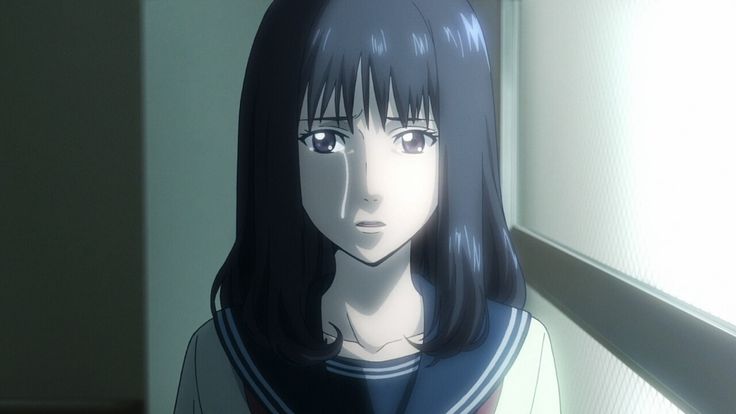February 13, 2024
·
0 comments
By Zoe Crombie.
A shy boy admires a popular girl in his class, a safe distance away from her macho ‘boyfriend’ and judgemental peers, hoping that she may just be different from the others. This isn’t an uncommon set up for an anime, particularly one set in a high school, but Harmonie takes an intriguing direction as his ability to recreate any tune he hears attracts her attention in a twist of fate. As the two become closer, their creativity becomes intertwined, and the film delves into the mystery of an evocative song, a shared dream, and three glass bottles.
Though many of the most famous anime directors are associated with feature films (Hayao Miyazaki and Satoshi Kon) and to an extent television series (Hideki Anno), but there’s another arena of anime where some fascinating creative voices can be heard: shorts on video, as festival entrants and as music videos or even advertisements allow for enormous experimentation, and pithy explorations of unique story concepts.
One filmmaker who works regularly in this mode is Yasuhiro Yoshiura. Known for film festival releases that showcase fresh ideas in a limited runtime, Yoshiura has made a career out of the art of the short form animation, from video releases like Pale Cocoon and Aquatic Language to anime premiered online like Patema Inverted and Time of Eve. Usually working in a science fiction-tinged mode with futuristic settings or strange new phenomena, the director has a flair for the spectacular and the unexplainable, and nowhere is this clearer than in his 2014 short Harmonie.
Harmonie follows Akio Honjou, a shy high school boy who only feels understood by his two friends, but who longs to be known by his more popular crush Juri Makina, a quietly beautiful girl surrounded by an intimidating group of louder kids. Describing this desire in an opening narration as wanting to find commonalities between their ‘worlds’, this idea becomes increasingly literal, with the inner worlds of the characters expressed beautifully through dream sequences soundtracked to music written in-universe by Makina.
A benefit of the short runtimes of Yoshiura’s work is undeniably the visuals, which are given much more attention than they would have been afforded in a more sizeable piece of media. There’s no overuse of pre-drawn establishing shots or staring awkwardly at the backs of characters in Harmonie; each shot, even when depicting a simple character reaction or classroom scene, feels intentionally realised and structured in a way that allows even the most mundane moments to stick with you.
With that being said, the standout elements of Harmonie are undeniably the dream sequences: headfirst dives into fantasy away from the slice of life setting of the rest of the film. Loosely resembling the growing love between the two leads, but suggesting a more complex backstory for Makina in particular, these scenes are rendered by Yoshiura to be a total stylistic break, more reminiscent of a sci fi Suzume than an Anthem of the Heart style high school romantic drama.
Centring around an apocalyptic world reminiscent of Yoshiura’s later works, this fictional space is filled with faceless automatons, ruined towers, and mysterious magical artefacts, all rendered with wonderful melodrama. The effect is memorable, giving the impression of a dreamscape more impressively and authentically than most animations out there.
While unique in its premise, Harmonie does sometimes fall into some of the more unfortunate tendencies of its romantic shounen peers. Watching our protagonist bang his head against the wall while wailing ‘baka’ under his breath gets a little tiresome the second time round, and the overbearing masculinity of the so-called boyfriend does tend to grate (by design, to be fair). But in other ways, the cliches enhance the sincerity; like Makoto Shinkai, the master of breathing new life into old romance tropes, the film is infused with the naivety and enthusiasm of two kids feeling as though they’re the first two people in the world to discover love.
Harmonie may leave you wishing for a longer runtime, but it’s a great little story with a visual and emotional scope that more than exceeds what you might expect from its limited runtime. It’s also a great way into Yoshiura’s filmography, filled with works like this that give a little space to a big concept. Like the dream at the centre of the film that clings to the characters and irrevocably links them, this is an OVA that will stick with you for a long time to come.
Zoe Crombie is an associate lecturer and PhD candidate at Lancaster University working on Studio Ghibli. Harmonie is released in the UK by Anime Limited.
